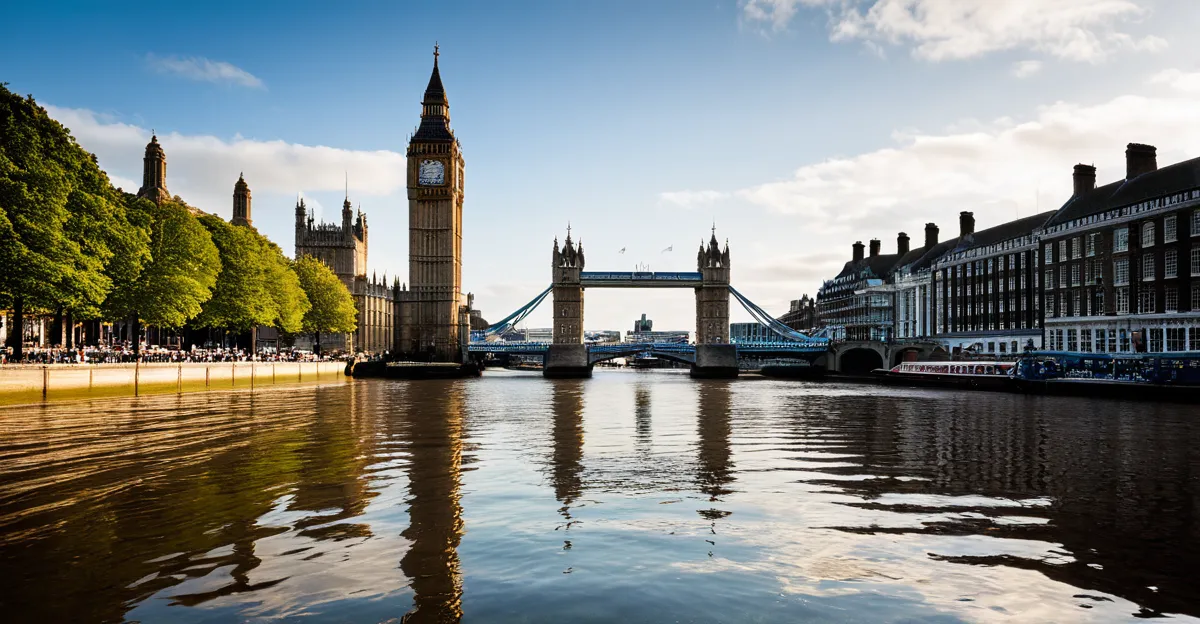Overview of UK Tourism’s Economic Influence in 2024
The UK tourism economic impact 2024 remains a pivotal driver of the national economy. According to recent VisitBritain data, tourism contributed significantly to GDP, reflecting a resilient recovery from the disruptions of previous years. In 2024, the sector generated billions in revenue, supported millions of jobs, and attracted both domestic and international visitors.
Tourism statistics UK reveal an upward trend in visitor spending, especially in major urban centers like London, Edinburgh, and Manchester. Compared to prior years, there has been a notable increase in domestic tourism, as more UK residents explore local destinations. This shift is crucial, partially balancing fluctuations in inbound travel.
In parallel : What are the current debates on UK privacy laws?
Immediate changes include enhanced marketing strategies by VisitBritain and the adoption of technology to improve visitor experiences. Seasonal spending patterns have become more balanced throughout the year, reducing reliance on peak periods. These developments underscore the growing sophistication and adaptability of UK tourism.
Understanding the 2024 economic influence of tourism helps businesses and policymakers anticipate opportunities and challenges, ensuring the sector’s sustained contribution to the UK economy. The integration of data-driven insights signifies positive momentum for the tourism industry as it adapts to evolving market conditions.
Topic to read : What Are the Best Practices for Maintaining Integrity in Journalism?
Tourism’s Contribution to GDP and Growth Sectors
The UK tourism GDP 2024 accounts for approximately 5.5% of the country’s total economic output, underscoring tourism’s vital role in the national economy. Key sectors benefiting from tourism include the hospitality sector UK, retail, and transport, which together absorb the majority of visitor spending. Hospitality stands out with robust growth driven by increased demand for accommodation, dining, and leisure services in 2024.
Urban centers such as London, Edinburgh, and Manchester continue to spearhead economic growth through tourism. These cities host major events, cultural attractions, and business travel, all contributing to the overall sector breakdown tourism UK. Scotland’s tourism sector, in particular, has seen notable expansion, fueled by both international visitors and domestic travelers exploring local heritage sites.
Recent developments highlight improved infrastructure and investment targeting these growth sectors, aiming to enhance visitor experiences and extend stays. The transport industry’s adaptation to increased demand also plays a crucial role in facilitating smooth travel, supporting the wider economic ecosystem connected to tourism. Overall, the UK tourism GDP 2024 reflects a dynamic sector recovering and evolving with changing visitor preferences.
Tourism Employment and Workforce Trends
Tourism employment UK 2024 continues to be a critical pillar supporting the broader economic recovery. According to latest figures, UK tourism jobs remain substantial, accounting for roughly 2.6 million roles directly linked to the sector. This shows a re-emergence toward pre-pandemic levels, though some labor market trends tourism reveal persistent challenges.
Regionally, there are notable disparities in tourism employment. Urban centers like London and Edinburgh have rebounded strongly, while more rural areas face slower job recovery. This uneven distribution highlights the importance of tailored local strategies to resolve workforce imbalances.
A significant issue is labor shortages, particularly in the hospitality sector UK, where recruitment struggles affect service quality and business capacity. Industry leaders emphasize the need to attract and retain workers by improving wages, training, and working conditions.
Post-pandemic workforce recovery remains gradual; flexible employment patterns and evolving tourist behaviors continue to shape labor demands. Therefore, addressing these tourism employment UK 2024 trends is essential for sustaining growth and meeting rising visitor expectations across all regions and sectors.
Regional and Sectoral Economic Impacts
UK tourism’s economic influence in 2024 varies widely across regions, reflecting diverse visitor preferences and infrastructure strengths. England continues to dominate in volume and revenue, with London and the South East driving the highest economic output. Scotland’s regional tourism shows robust growth fueled by domestic travelers and a resurgence in international visitors keen on cultural and natural heritage, enhancing regional tourism impacts UK notably.
Wales and Northern Ireland also demonstrate positive trends, with investments boosting both urban attractions and rural experiences. However, rural areas across the UK often lag behind urban counterparts, highlighting the need for improved connectivity and tailored strategies to maximize regional economic growth.
The tourism sector analysis UK reveals that hospitality, retail, and transport are consistently strong performers, though challenges persist in rural service provision and seasonal fluctuations. Urban tourism benefits from year-round events and business travel, whereas rural tourism focuses heavily on leisure and outdoor activities, creating contrasting economic contributions. This regional and sectoral complexity underlines the importance of balanced policies to support all parts of the UK’s tourism economy in 2024.
Key Trends Influencing the UK Tourism Economy in 2024
Emerging tourism trends UK 2024 reveal a pivotal shift in visitor behavior and spending patterns. Both inbound travel UK and domestic tourism UK contribute decisively to the sector’s recovery. Domestic travelers are increasingly favouring staycations and regional destinations, which helps diversify economic benefits beyond traditional hotspots. This change reflects evolving preferences towards sustainable and local experiences.
Technology influences travel patterns significantly, with apps and digital platforms enhancing bookings and personalized itineraries. Additionally, sustainability concerns shape consumer choices, prompting businesses to adopt greener practices to meet visitor expectations. This trend not only supports environmental goals but also attracts eco-aware tourists, fostering long-term viability.
International visitor markets continue to rebound, with Europe, North America, and emerging Asian markets showing growing interest in the UK. These inbound travel UK flows bring valuable foreign exchange, aiding overall economic resilience.
Overall, staying attuned to these tourism trends UK 2024 is essential for businesses and policymakers alike. It enables targeted strategies that capitalize on shifting demographics and sustainable tourism demands, safeguarding the sector’s future growth potential.
Challenges Facing the UK Tourism Industry
The UK tourism challenges 2024 are multifaceted, with labor shortages remaining a critical obstacle. Businesses across the hospitality sector UK struggle to recruit sufficient staff, which constrains service quality and capacity. This shortage is compounded by the post-pandemic tourism UK rebound, where fluctuating workforce availability hampers consistent operations.
The rising cost of living further strains both workers and employers, reducing disposable income for travel and increasing operational expenses. These pressures contribute to fluctuating visitor experiences and may limit tourism growth despite strong demand.
Brexit tourism impact continues to influence inbound travel and business operations. Restrictions on labor mobility have exacerbated workforce gaps, while regulatory changes affect supply chains and visitor entry processes. Although international arrivals show positive trends, ongoing uncertainty persists in some markets.
Industry groups and government bodies have initiated programs aimed at mitigating these challenges. Efforts include wage improvements, training schemes, and flexible employment models to attract and retain workers. Understanding the UK tourism challenges 2024 helps stakeholders adapt strategies to support recovery and build long-term resilience in this vital economic sector.
UK Government Policy and Expert Insights on Tourism
Government support tourism in 2024 plays a crucial role in sustaining the UK tourism economic impact 2024. Central to this is VisitBritain’s enhanced role in coordinating national strategies, promoting the UK as a competitive tourist destination, and leveraging data to tailor marketing efforts. These initiatives focus on driving both inbound and domestic visitor numbers, essential for recovery and growth.
Key government policies aim to improve infrastructure, simplify visa processes, and provide financial incentives to tourism businesses. VisitBritain has introduced targeted campaigns promoting lesser-known regions, helping to distribute visitor spending more evenly and support regional economic growth. Such support also addresses workforce challenges by funding training and apprenticeships to mitigate labor shortages.
Expert commentary often highlights VisitBritain data showing the correlation between well-funded marketing programs and increased tourism revenues. Economists stress the importance of ongoing government commitment to stabilize the sector post-pandemic and ensure resilience amid Brexit uncertainties. The synergy of governmental policy, VisitBritain’s initiatives, and expert insights offers a comprehensive foundation for the UK tourism economy’s sustainable advancement in 2024.







